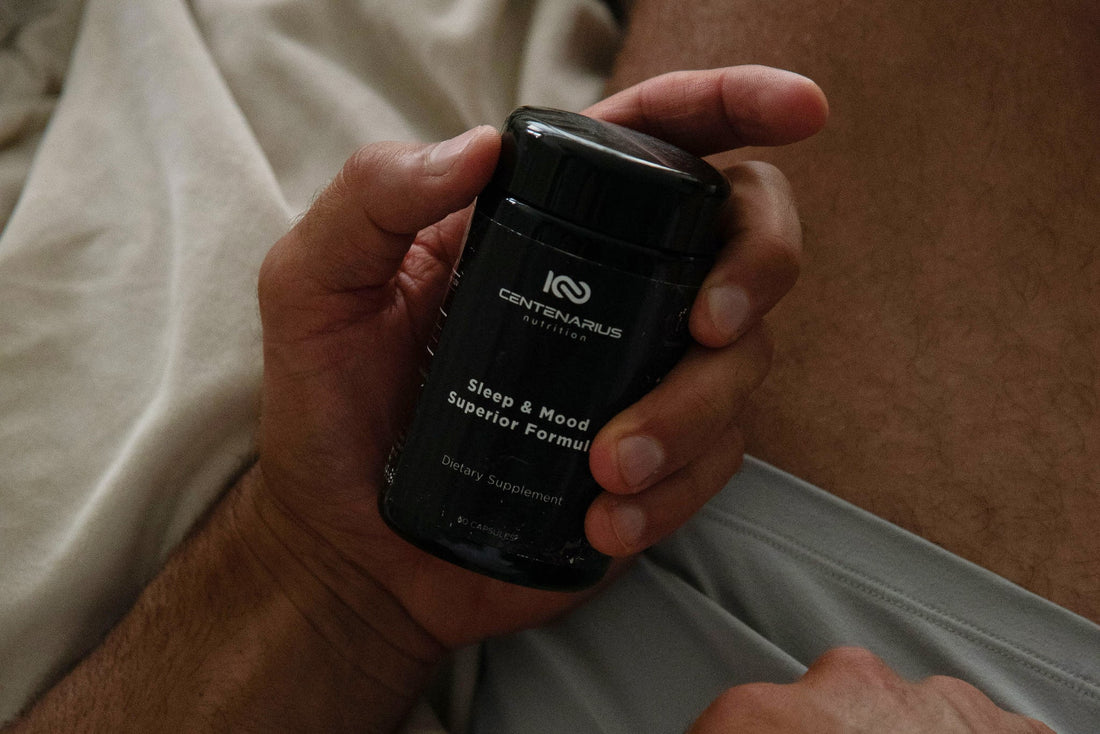The importance of deep sleep is often overshadowed by other popular topics like diet and exercise, yet it's equally vital. Think about it: how you feel after a night of tossing and turning versus waking from deep, undisturbed rest. The difference is monumental. Deep sleep, or slow-wave sleep as the sleep foundation and countless sleep studies refer to it, is the cornerstone of our body's natural repair system. It's in these precious hours of sleep that our brains clear out the clutter, our cells repair themselves, and our energy reserves are replenished. Without enough deep sleep, everything from our mood to our physical health can take a hit.
But getting into that deep, restorative stage of sleep isn't always easy. Our modern lifestyles, filled with late-night screen time, stress, and caffeine, can interfere with our ability to slip into slow-wave sleep. The consequences of missing out on deep sleep are many as studies have even shown that the amount and quality of sleep we get can directly affect how long and how well we live.
In this discussion, we'll not just highlight the importance of deep sleep but also share practical, actionable tips to help you enjoy more of it. Whether it's adjusting your lifestyle to support better sleep, understanding the role of diet and exercise, or incorporating supplements like our Sleep & Mood Superior Formula, we're here to help you unlock the door to better sleep.

The Science of Sleep
Sleep isn't just a single, uniform state of being. It's a complex, dynamic process that cycles through several stages, including REM (Rapid Eye Movement) sleep, NREM (Non-REM) sleep, and deep sleep.
And how much deep sleep do we actually need? According to the American Academy of Sleep Medicine, adults need between 7 to 9 hours of sleep each night but the quality and stages of our sleep also matter immensely. From light sleep to the deep, restorative stages and the dream-rich REM sleep, each plays a crucial role in our health.
During NREM sleep, which constitutes the bulk of our sleeping hours, our bodies slow down. Our heart rate, breathing, and brain waves all reduce to their lowest levels. NREM is divided into stages, with Stage 1 acting as the light, barely-asleep phase, and Stage 3 being the deep sleep phase, or slow-wave sleep, where the magic really happens. It's in this stage that our bodies and brains get the restoration they need. Deep sleep is when tissue repair occurs, growth hormones are released, and energy is restored. It's also crucial for memory consolidation, think of it as your brain's nightly housekeeping session, tidying up the day's memories.
Then there's REM sleep, the stage most associated with vivid dreams. REM sleep is essential for brain functions, like learning and memory. But it's the deep, slow-wave sleep that's the foundation of physical health and recovery.
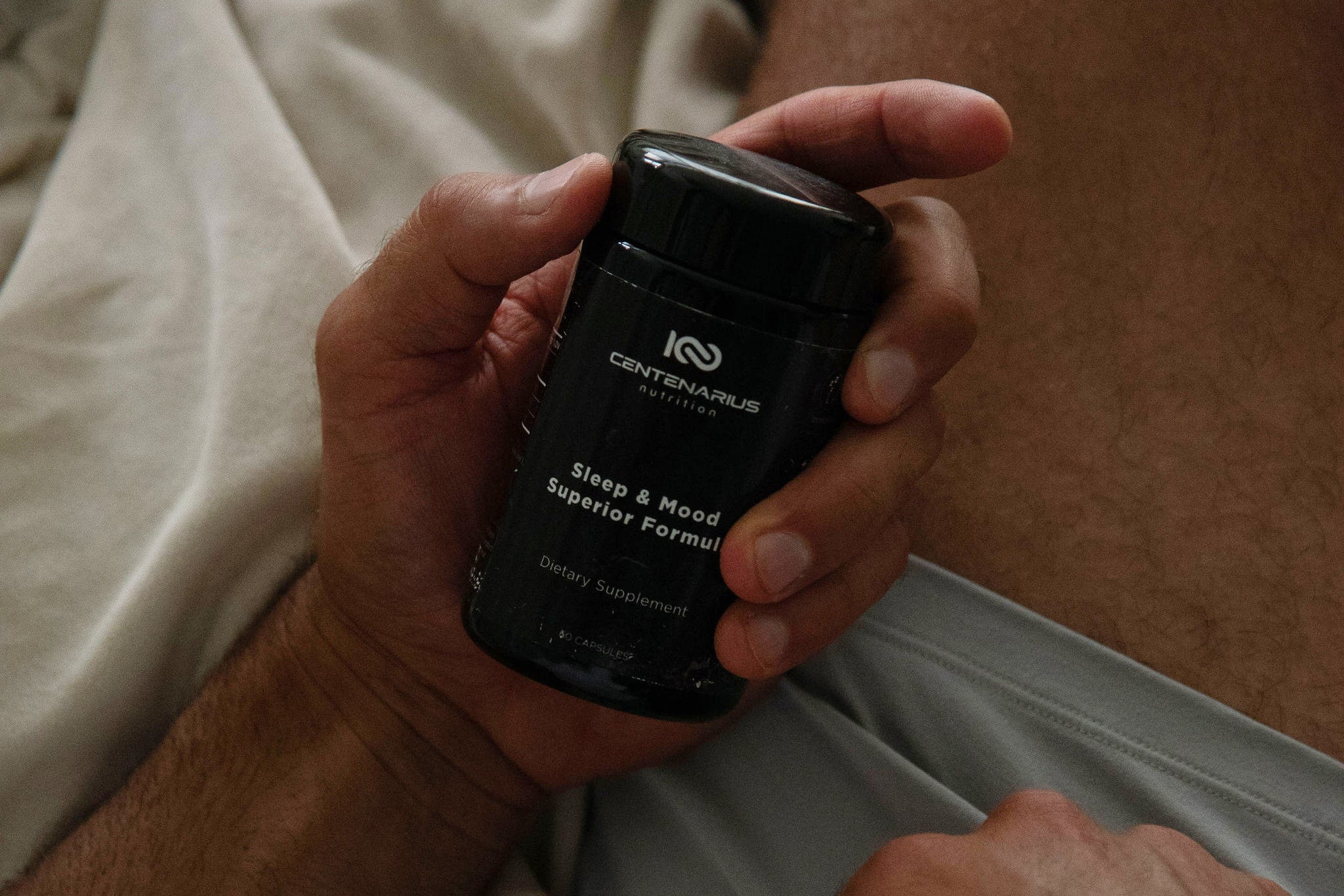
Slow-Wave Sleep: The Foundation of Restorative Rest
This stage of sleep is characterized by slow, delta brain waves and is considered the most restorative phase of the sleep cycle. It's characterized by slow brain waves, known as delta waves, and is a critical period for physical and mental restoration. Like mentioned above, during slow-wave sleep our bodies focus on healing and growth, repairing tissue, and strengthening the immune system.
The Benefits Associated with Slow-Wave Sleep
The benefits associated with slow-wave sleep extend beyond physical recovery. This stage of sleep is crucial for detoxifying the brain, a process that helps prevent neurodegenerative diseases and supports cognitive health. Additionally, slow-wave sleep has been linked to improved emotional regulation and stress resilience.

Addressing the Lack of Deep Sleep
A lack of deep sleep, or insufficient slow-wave sleep, can have profound effects on the body and brain. Symptoms of sleep deprivation, including decreased cognitive function, heightened stress response, and compromised immune health, highlight the necessity of achieving adequate deep sleep. Strategies to increase slow-wave sleep include improving sleep hygiene, creating a conducive sleep environment, and considering the use of sleep aids or supplements designed to enhance the quality of rest.
The Longevity Connection
You might wonder, "Can improving my sleep really extend my lifespan?" Studies have indeed found a direct correlation between the amount of quality sleep, particularly deep sleep, and life expectancy.
Deep sleep plays a critical role in anti-aging processes and cellular repair. Think of each night's deep sleep as your body's own time machine, working to reverse the day's wear and tear. It's during these precious periods of deep sleep that our cells are repaired, and our bodies rid themselves of toxic waste, particularly from the brain. This stage of sleep is also associated with a reduction in inflammation and supports the immune system, both of which are crucial for longevity.
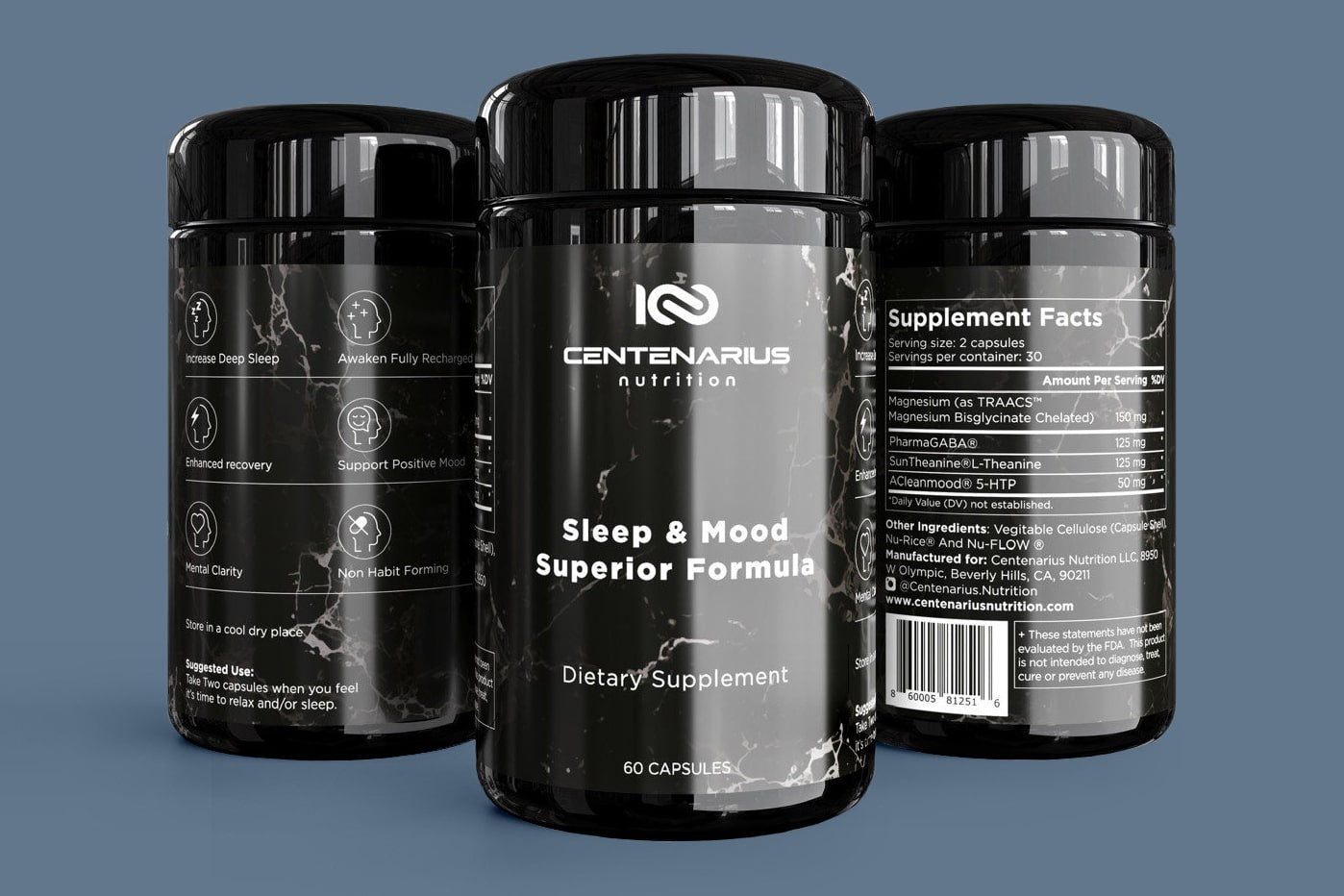
Get More Deep Sleep With Our Superior Formula
Understanding the importance of sleep is the first step towards improving it. And for those of us struggling to achieve that blissful state of deep, restorative slumber, there's hope in the form of holistic, science-backed aids like our Sleep & Mood Superior Formula.
This formula is designed to help you sleep all while respecting the body’s natural processes, and uplifting mood without the crutch of habit-forming ingredients. The magic lies in its bioavailability – the ease with which your body can absorb and utilize each ingredient, ensuring you get the sleep you need, night after night.
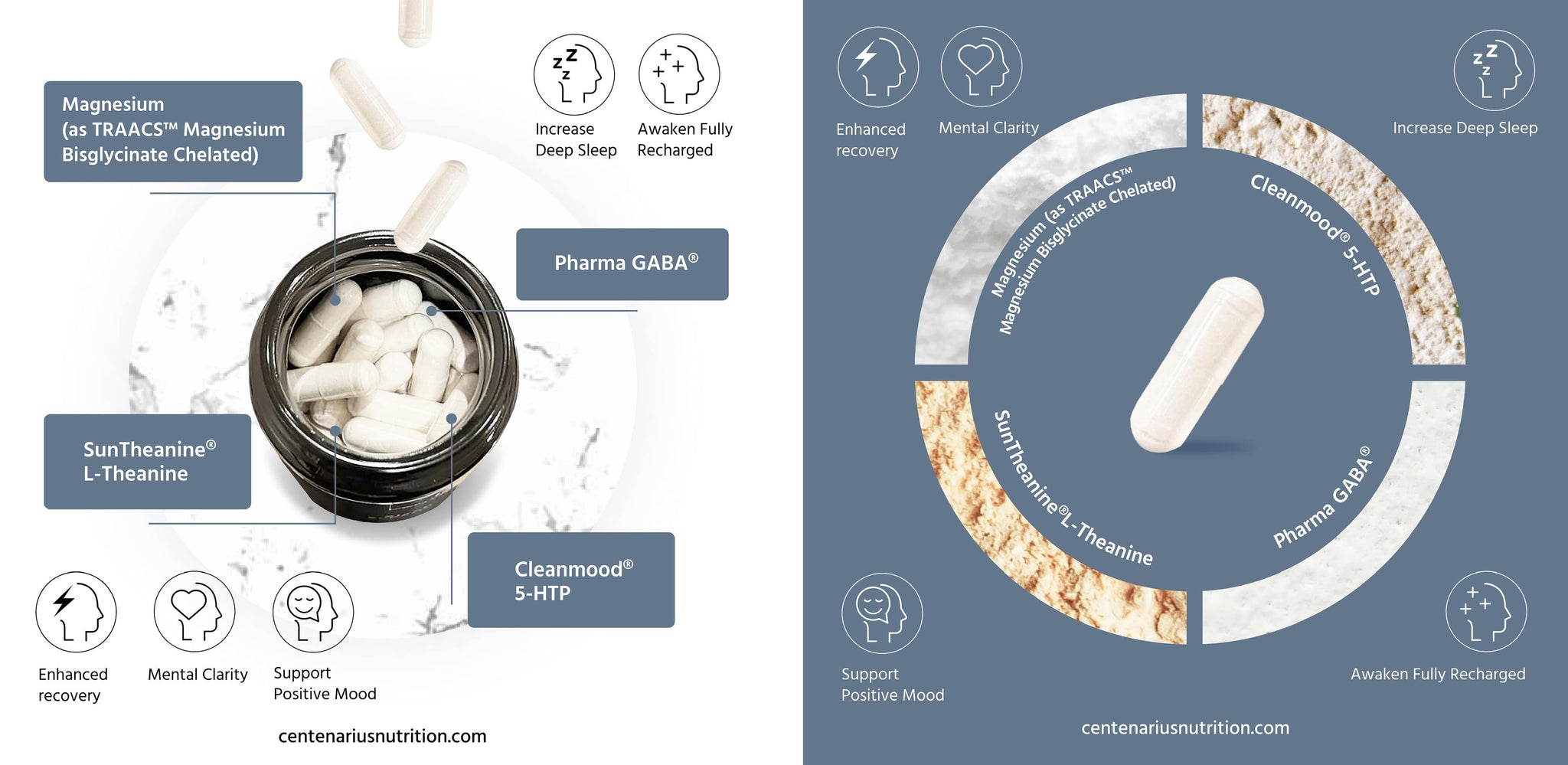
Key Ingredients
Let's spotlight the star players: Suntheanine®, PharmaGABA, CLEANMOOD™, and TRAACS™ Magnesium Bisglycinate Chelate. Each of these ingredients was chosen not just for its efficacy but for how beautifully they work together to usher you into a state of restful sleep and emotional balance.
Suntheanine®: This is the highest purity form of L-Theanine, a marvel of an amino acid that’s known for its ability to relax without sedating, to calm the mind without dimming its brightness. It's like a deep breath for your brain, helping to smooth out the rough edges of a stressful day and easing you into a state of relaxed alertness. At night, this can translate into a quicker transition to sleep.
PharmaGABA: GABA is the brain’s own calming agent, a neurotransmitter that helps reduce neural activity and allow our minds to settle. PharmaGABA is a natural form of this compound, known for its ability to decrease stress-related beta waves in the brain while increasing the production of alpha waves, leading to a profound sense of physical relaxation and mental focus. It’s like the difference between a calm, clear lake and one disturbed by incessant ripples.
CLEANMOOD™: This is our plant-based hero, a certified organic 5-HTP from Griffonia simplicifolia seeds that supports serotonin production, the feel-good neurotransmitter. By fostering serotonin levels, CLEANMOOD™ aids in improving sleep quality, mood, stress management, and even weight control. It’s akin to feeding your brain the nutritional equivalent of sunshine, helping brighten your mood from within!
TRAACS™ Magnesium Bisglycinate Chelate: Magnesium is involved in over 300 biochemical reactions in our bodies, from energy production to muscle function and, crucially, the regulation of sleep and mood. This specific form of magnesium is chelated, meaning it’s bound to amino acids to enhance its absorption and bioavailability. It gently relaxes the muscles and nervous system, paving the way for restorative sleep and a serene state of mind.
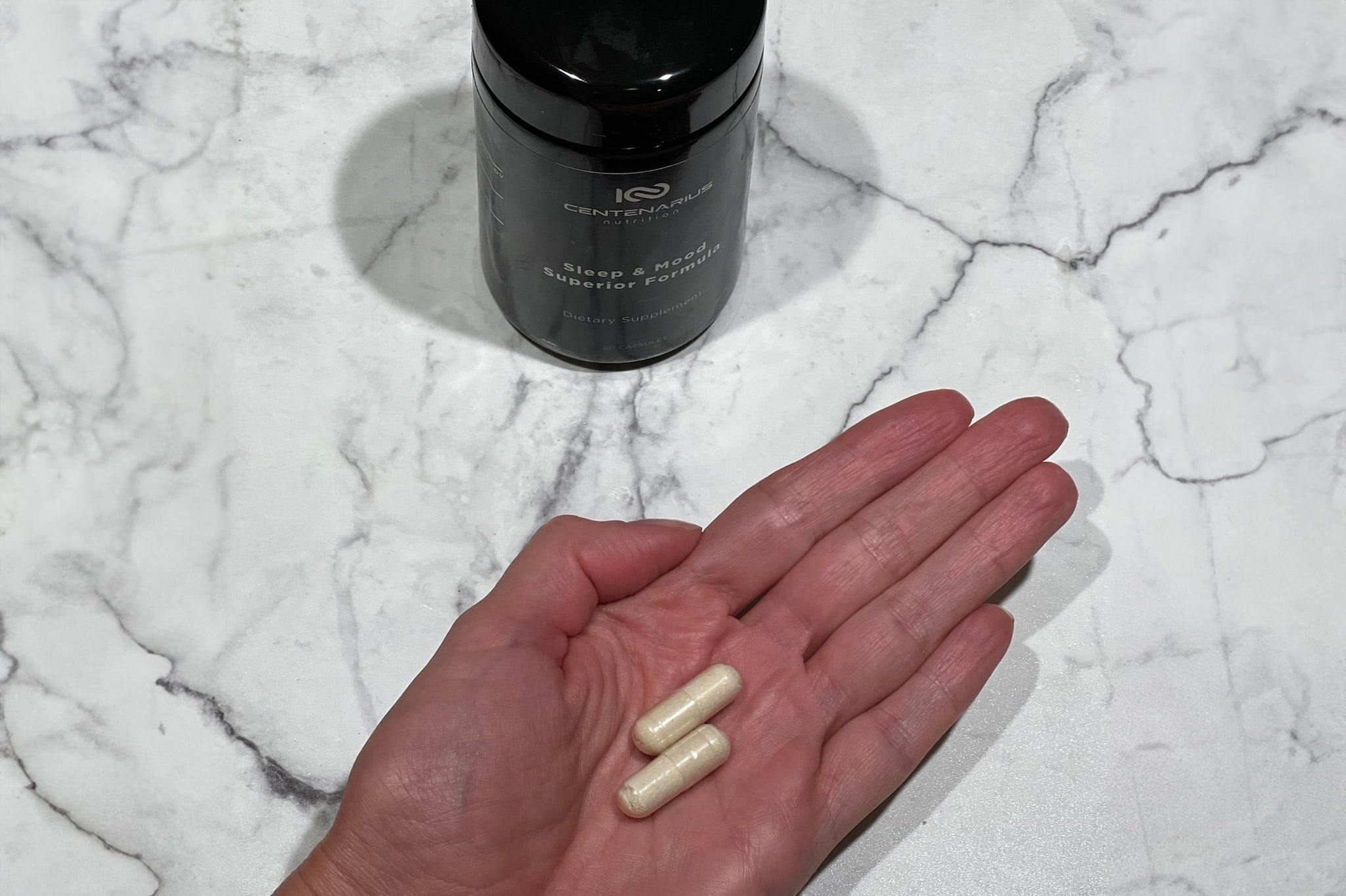
Each ingredient in the Sleep & Mood Superior Formula is a powerhouse in its own right, but together, they create a symphony of sleep and emotional well-being support. It's our love letter to those who struggle with the dual challenges of sleep and mood.

Sleep Deprivation and The Challenges of Modern Sleep Hygiene
One of the most pervasive issues we face is the blue light emanating from the screens that have become almost extensions of ourselves. Phones, tablets, and laptops play a crucial role in our daily lives, yet their light disrupts our natural sleep cycles, tricking our brains into believing it's still daylight and thus time to be awake. This interference is a modern curse on our body's ancient rhythms, delaying the release of melatonin, our sleep hormone, and pushing our sleep further into the night.
Then, there's the matter of our 24/7 society. The world never sleeps, and often, neither do we. Work emails at midnight, binge-watching series until the early hours, or scrolling through social media feeds—our exposure to constant stimulation and the expectation to always be "on" has blurred the lines between day and night, work and rest. This round-the-clock lifestyle has not only fragmented our sleep patterns but also heightened our stress levels, making it even harder to wind down and embrace sleep.
Our diets and caffeine consumption play their parts too. The lure of a late-night snack or the afternoon coffee to push through the day's slump are habits woven into the fabric of our lives. Yet, these choices can sabotage our sleep, either by causing discomfort and indigestion or by keeping us in a state of heightened alertness when we should be unwinding.
Moreover, societal pressures and the glorification of busyness have led many of us to deprioritize sleep in favor of productivity or leisure. There's a badge of honor often associated with getting by on minimal sleep, an insidious trend that undermines the critical importance of rest. It's a cycle that perpetuates a host of negative outcomes, from diminished mental acuity to weakened immune responses.
At Centenarius, we're committed to not only providing products like the Sleep & Mood Superior Formula that support your journey towards better sleep but also offering guidance and strategies to navigate the complexities of modern sleep hygiene.

Tips for Enhancing Deep Sleep Stages
Embrace the Power of Consistency: Aim to go to bed and wake up at the same time every day, even on weekends. This consistency strengthens your body’s sleep-wake cycle and can enhance the quality of your deep sleep stages.
Mind Your Light Exposure: Dim the lights and limit screen time at least an hour before bed. The blue light from screens can inhibit melatonin production, making it harder to fall asleep. Consider wearing blue light-blocking glasses in the evening if screen use is unavoidable.
Create a Pre-Sleep Ritual: Engage in calming activities before bed to signal to your body it's time to wind down. This could be a warm bath, reading a book by soft light, or gentle stretching. These activities can become cues that help ease the transition to sleep.
Optimize Your Sleep Environment: Creating a sanctuary for sleep in your bedroom is crucial. This means paying attention to temperature (around 65°F or 18°C is often recommended), minimizing noise, and ensuring your room is as dark as possible. The setup of your bedroom should invite relaxation and signal to your body that it’s time to rest. Consider using blackout curtains, white noise machines, and a comfortable mattress and pillows to create an ideal sleeping environment.
Watch Your Intake: Avoid large meals, caffeine, and alcohol close to bedtime. While alcohol might make you feel sleepy, it can disrupt your sleep cycle, particularly the deep sleep stage.
Manage Stress: Incorporate stress-reduction techniques such as meditation, deep breathing, or journaling into your evening routine. Lowering stress levels can improve sleep quality and increase deep sleep.
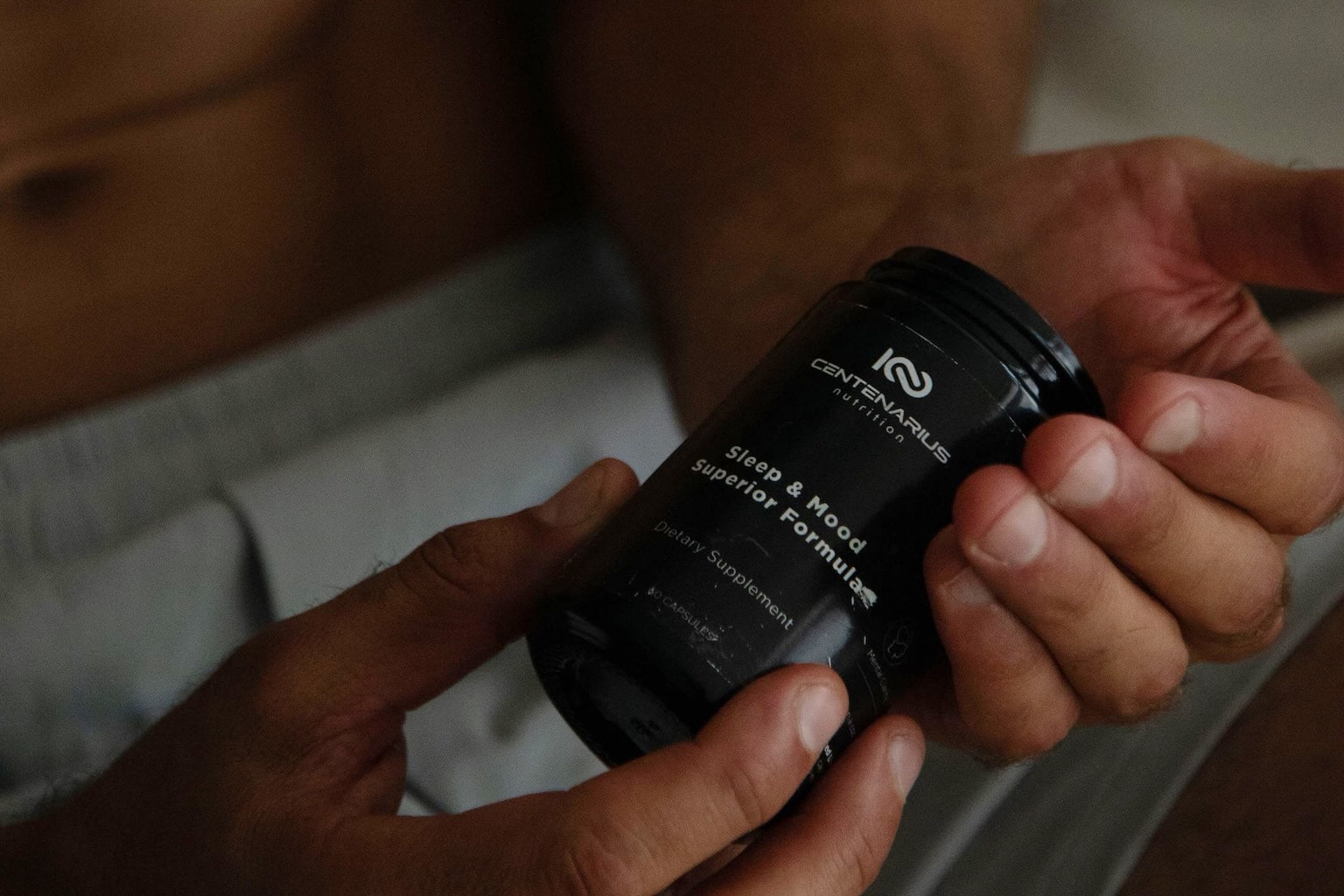
Conclusion
Our journey through the stages of sleep, the challenges that disrupt them and the lifestyle adjustments that can enhance our sleep quality highlights that sleep is a crucial component of health, as vital as nutrition and exercise. And within the realm of sleep, deep sleep is the secret to achieving optimal health and longevity.
Remember, getting enough deep sleep isn't a luxury, it's a necessity. Whether it's adjusting your sleep environment, adopting a pre-sleep ritual, or utilizing our Sleep & Mood Superior Formula, all of these steps can help you take a step towards better deep sleep.

FAQ's
What Is Deep Sleep and Why Is It Important?
Deep sleep, or slow-wave sleep, occurs during stage 3 of the non-REM sleep cycle. It's a critical period of sleep when your body and brain undergo restoration and healing. During deep sleep, your body repairs tissues, strengthens the immune system, and builds bone and muscle. It also helps to refresh your brain, playing a vital role in memory consolidation. Getting enough deep sleep is essential for overall health, impacting everything from mood regulation to physical recovery.
How Much Deep Sleep Do You Need?
While total sleep needs vary by individual, adults typically require 7-9 hours of sleep per night, with deep sleep constituting approximately 13-23% of sleep, or about 60-90 minutes. However, this can vary depending on age, lifestyle, and health. Listening to your body and assessing how you feel can help you determine if you're getting enough deep sleep.
How Can I Tell If I'm Getting Enough Deep Sleep?
Signs that you might not be getting sufficient deep sleep include feeling tired upon waking, daytime drowsiness, and difficulty concentrating. Utilizing a sleep tracker can provide insights into your sleep stages, including how much deep sleep you're getting. Creating a personalized sleep profile that includes sleep-improving practices can also be beneficial.
What Affects Deep Sleep?
Factors that can affect deep sleep include stress, diet, exercise, screen time before bed, and overall sleep hygiene. Improving these areas through lifestyle changes and mindfulness practices can enhance the quality and quantity of deep sleep.
What Are Some Quick Tips for Better Sleep?
Tips for better sleep include establishing a regular sleep schedule, creating a comfortable sleep environment, limiting exposure to blue light before bed, managing stress, and avoiding caffeine and alchool before bedtime. Incorporating relaxation techniques and considering sleep-supportive supplements like our Sleep & Mood Superior Formula can also be helpful.
What Are the Stages of Sleep, and Why Are They Necessary?
The stages of sleep include stage 1 (light sleep), stage 2 (the onset of sleep), stage 3 (deep sleep), and REM (rapid eye movement) sleep. Each stage serves a unique purpose, from physical restoration during deep sleep to memory consolidation and emotional processing during REM sleep.
How Can I Create a Personalized Sleep Profile?
Creating a personalized sleep profile involves understanding your individual sleep needs and patterns. Consider factors like your ideal amount of sleep, routines that help you relax, and any specific challenges you face. Tracking your sleep with a device or journal can offer insights, and experimenting with different strategies can help identify what works best for you.

Additional Resources
Physiology, Sleep Stages - National Library of Medicine
Regulation and Functional Correlates of Slow Wave Sleep
What is deep sleep, and how much of it do you need? - Medical News Today
The Power of Sleep and Its Impact on Our Longevity
How Much Deep, Light, and REM Sleep Do You Need? - Healthline
Slow-Wave Sleep – How Can You Improve It?
What Is Deep Sleep and Why Is It Important? - Healthline
Science of Sleep: How is Sleep Regulated? - Harvard Division of Sleep Medicine



